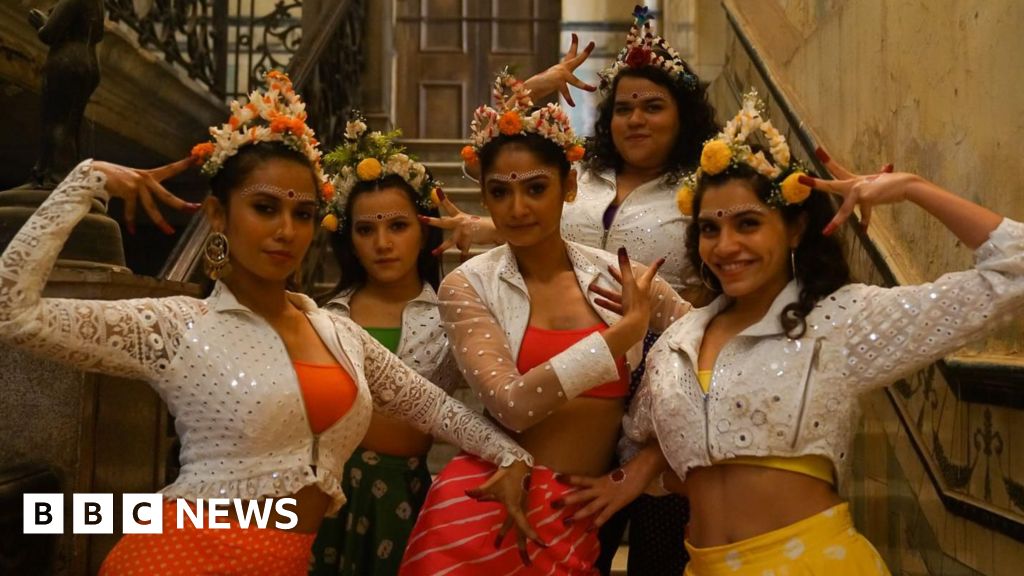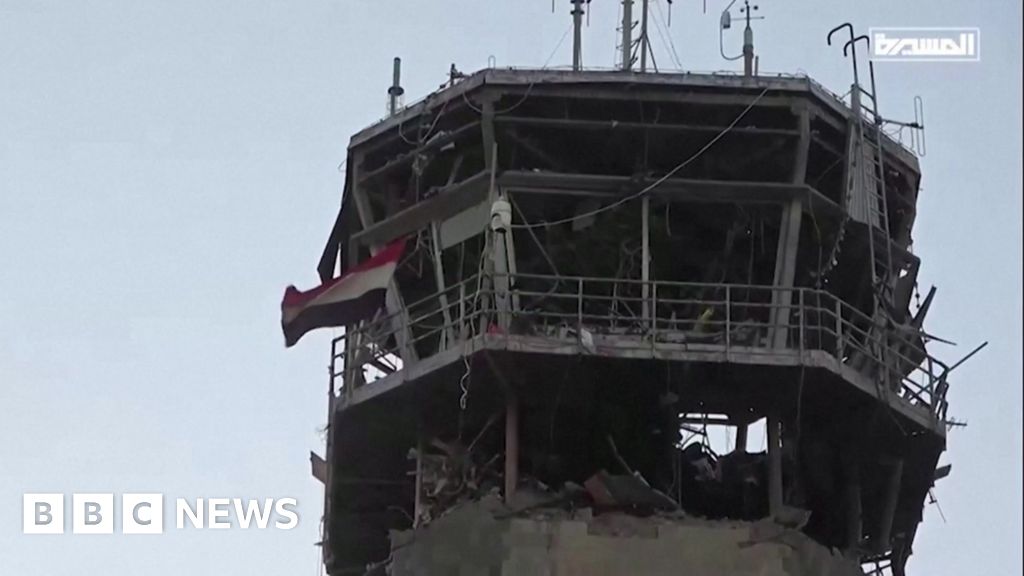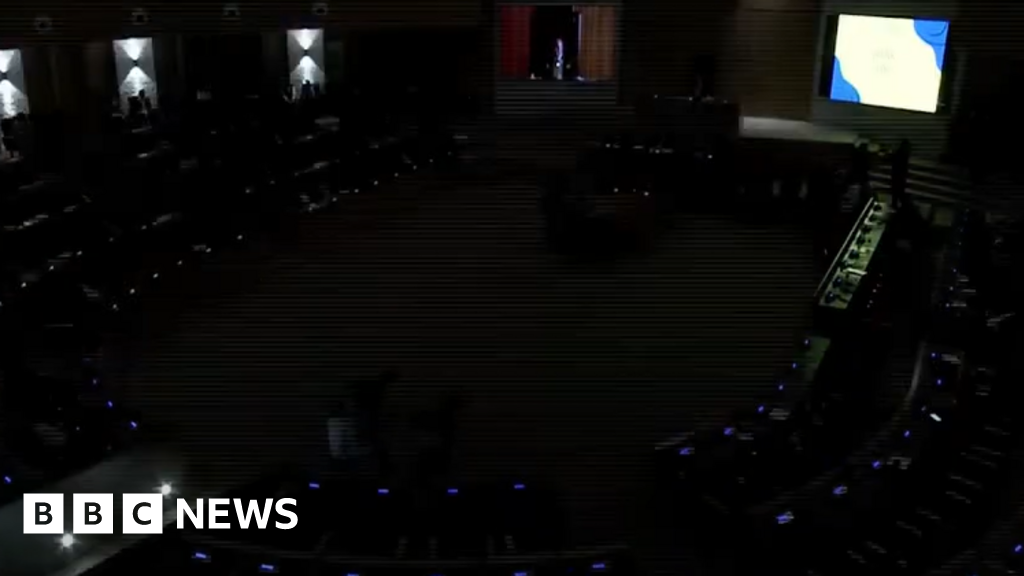THIS is the shocking moment a Christmas tree was torched in a town in Syria, fuelling fears of targeted attacks on Christians after the fall of Bashar al-Assad’s regime.
Footage showed the tree being torched in the town square of Suqaylabiyah near Hama, just days after it was lit for Christmas.
Hundreds of Christians poured into the streets of Damascus on Monday night chanting "We demand the rights of Christians," as they marched toward the Orthodox Patriarchate headquarters.
The protests come amid growing concerns over whether the new HTS-led administration, which toppled Assad earlier this month, will uphold its promises to protect religious and ethnic minorities.
The Syrian Observatory for Human Rights reported that the perpetrators were foreign fighters linked to the extremist group Ansar al-Tawhid, which has ties to al-Qaeda.
In response, a religious leader from HTS denounced the act, insisting that the attackers were "not Syrian" and vowing swift justice.
"The tree will be restored and lit up by tomorrow morning," the leader said, a promise that local media later confirmed was fulfilled.
But the damage extends beyond the tree itself.
Christian communities, already fearful of the Islamist group's rise to power, are questioning their place in a Syria that no longer has Assad at its helm.
"If we're not allowed to live our Christian faith in our country, as we used to, then we don't belong here anymore," said a demonstrator named Georges told Sky News.
The torching of the tree follows other troubling incidents in the weeks since Assad's fall.
Tyrant Assad 'sold Syrian military secrets to enemy Israel to let him ESCAPE'
An Orthodox church in Hama was recently targeted in a shooting, and a Christian cemetery in Mhareh was vandalised.
HTS leader Ahmed al-Sharaa, also known as Abu Mohamed al-Jolani, has publicly declared his commitment to unity and minority rights.
But these attacks have fuelled doubts about the group’s ability — or willingness — to protect all Syrians.
HTS, which originated as an al-Qaeda affiliate, has worked to distance itself from its jihadist roots in recent years.
Sharaa has repeatedly stated that his vision for Syria includes education for women, minority representation, and an end to sectarian divisions.
But the group remains designated as a terrorist organisation by the UN, US, EU, and UK, casting a shadow over its claims of reform.
The fall of Assad, a dictator who ruled Syria for 24 years under the guise of secularism while brutally suppressing dissent, has brought newfound freedom for some.
Yet for many Christians, Druze, Alawites, and other minorities, it has ushered in a period of uncertainty and fear.
In an interview with the BBC, Sharaa said: "The Syrian population has lived together for thousands of years.
"We are going to have dialogue and make sure everyone is represented.
"The old regime always played on sectarian divisions, but we won't.
"I think the revolution can contain everybody."
For now, however, incidents like the torching of the Christmas tree serve as a grim reminder of the challenges that lie ahead for Syria's fragile coexistence.
How many Christians are in Syria?
BEFORE the Syrian Civil War began in 2011, Christians made up about 10 per cent of Syria’s population, with an estimated 2 million people.
However, the ongoing conflict, violence, and economic hardship have caused a dramatic decline in the Christian population.
According to estimates from the European Asylum Support Office, the number of Christians in Syria has dropped to between 600,000 and 900,000 today, representing less than 2 per cent of the total population.
Reports from organisations such as ACI International have suggested that the Christian community in Syria has decreased even further to around 300,000 to 500,000 people.
The significant decline is largely attributed to ongoing instability, displacement, and emigration driven by the war and fears over religious persecution.




















 English (US) ·
English (US) ·